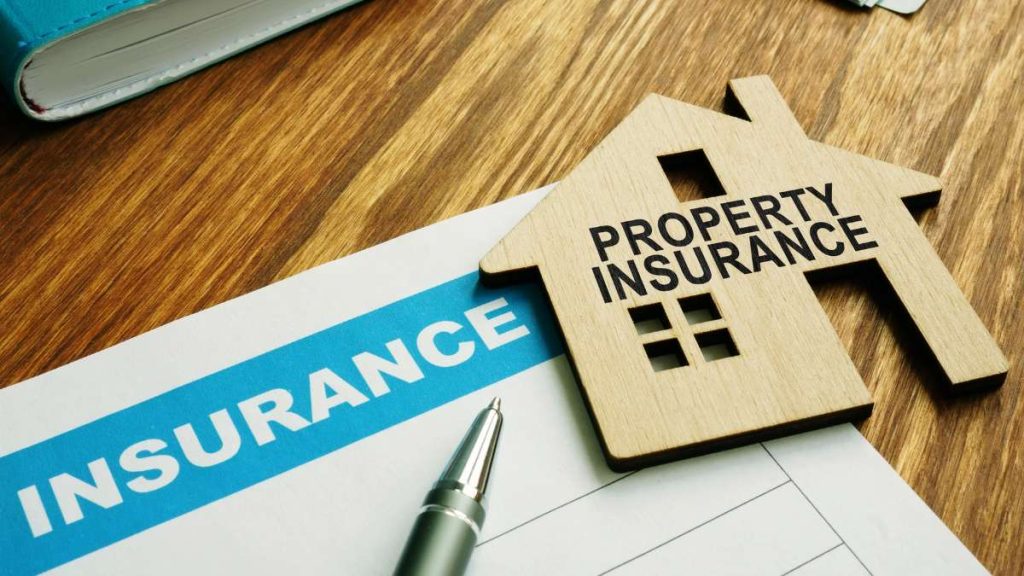Introduction
Overview of Business Property Insurance
Business property insurance, also known as commercial property insurance, is designed to protect the physical assets of a business from damage or loss due to unforeseen events. This type of insurance is a crucial safety net for companies of all sizes, safeguarding against a range of risks such as fire, theft, vandalism, and natural disasters. Without this coverage, businesses would be left vulnerable to costly damages, which could disrupt operations and lead to significant financial hardship. Business property insurance is typically bundled with other commercial insurance products but can also be purchased as a standalone policy depending on the business’s needs.
Why Business Property Insurance is Essential
For businesses that own or lease property, including office buildings, warehouses, or retail spaces, having property insurance is not just a prudent decision—it’s often essential for business continuity. The cost of replacing damaged or lost assets can be overwhelming, especially for small and medium-sized enterprises. Business property insurance provides a financial cushion, ensuring that a business can continue operations after a disaster, minimizing downtime and lost revenue. Moreover, many landlords and lenders require tenants or borrowers to have business property insurance as part of their lease or loan agreements, making it a legal or contractual obligation in many cases.
What is Business Property Insurance?
Definition and Scope
Business property insurance covers the tangible and intangible assets that a business owns or leases. These assets include buildings, equipment, inventory, and furniture. Depending on the policy, this insurance can protect the business from damage caused by perils such as fire, theft, and vandalism, as well as certain weather-related events like wind or hail. In some cases, business property insurance can also cover intangible assets like important documents, intellectual property, or accounts receivable if they are lost or damaged.
Key Components
- Tangible Assets Coverage: This part of the policy covers physical assets, such as buildings, machinery, equipment, and inventory. If these items are damaged or destroyed by a covered peril, the insurance will help repair or replace them.
- Intangible Assets: Some business property insurance policies also cover intangible assets, such as crucial financial documents, proprietary data, or accounts receivable that are lost due to a covered incident. While intangible assets are not physically damaged, their loss can lead to significant financial consequences for the business
What Does Business Property Insurance Cover?

Covered Perils
Most business property insurance policies cover a wide range of perils, including:
- Fire: One of the most common causes of property damage.
- Theft: Protection from burglary or other forms of theft.
- Vandalism: Coverage for intentional damage caused by others.
- Wind and Hail: Damage from severe weather events.
- Water Damage: Coverage for water damage caused by malfunctioning sprinkler systems or burst pipes.
Each policy may vary, but these are generally the standard perils covered. Some policies may also cover damage caused by civil unrest or riots.
Exclusions
While business property insurance covers many perils, there are notable exclusions. For instance:
- Flood and Earthquake: These natural disasters are typically not covered under standard business property insurance and require separate policies.
- Employee Theft: While theft by external parties may be covered, internal theft or fraud by employees is generally excluded from basic policies. Businesses may need to purchase employee dishonesty insurance for this protection.
- Losses in Transit: Items damaged while in transit are also usually excluded from business property insurance and may require additional inland marine insurance to cover these losses.
Types of Business Property Insurance Coverage
Actual Cash Value vs. Replacement Cost
One of the primary decisions business owners face when purchasing property insurance is whether to opt for Actual Cash Value (ACV) or Replacement Cost coverage:
- Actual Cash Value (ACV): This coverage pays the depreciated value of the damaged property, which means that the reimbursement reflects the current market value of the property, accounting for wear and tear. While this option generally has lower premiums, it may not cover the full cost of replacing the property, leaving the business to cover the difference.
- Replacement Cost: In contrast, replacement cost policies cover the cost of replacing damaged or destroyed property with new items of similar quality, without factoring in depreciation. Though these policies are more expensive, they provide better financial protection by ensuring that the business can fully replace lost items
Additional Coverage Options
- Business Interruption Insurance: In the event that a business needs to close temporarily due to property damage, business interruption insurance helps cover lost income and operating expenses during the recovery period. This coverage is especially important for businesses that rely heavily on physical operations, such as retail stores or restaurants【46†source】【48†source】.
- Ordinance or Law Insurance: If a property is damaged and must be rebuilt or repaired to comply with current building codes, ordinance or law insurance helps cover the additional costs associated with bringing the property up to code. This is particularly relevant for older buildings, where the cost of compliance may be significant【47†source】.
- Flood and Earthquake Insurance: For businesses located in high-risk areas, purchasing separate flood or earthquake insurance policies is crucial. These policies cover property damage caused by floods or earthquakes, which are typically excluded from standard business property insurance policies.
How to Determine the Right Level of Coverage?

Assessing Business Needs
Determining the right level of business property insurance coverage starts with evaluating the value of your physical assets, such as buildings, equipment, and inventory. Businesses should consider the cost of replacing or repairing these assets in the event of a disaster. Additionally, the potential risks that the business faces—whether it’s located in a high-crime area, near a floodplain, or prone to certain natural disasters—should influence the level of coverage chosen.
Industry-Specific Risks
Different industries face varying levels of risk. For example, a manufacturing business with expensive machinery and high levels of inventory faces greater risks compared to an office-based business. Similarly, a construction company with heavy equipment or a restaurant with valuable kitchen appliances might require more comprehensive coverage to protect against property damage. Understanding industry-specific risks helps businesses tailor their policies to cover the assets that are most vulnerable to loss or damage.
Cost of Business Property Insurance
Factors Affecting Premiums
Several factors determine the cost of business property insurance premiums, including:
- Building Value and Location: Higher-value buildings and those in high-risk areas, such as those prone to crime or natural disasters, typically have higher premiums. For example, a retail store located in an urban area may pay more for coverage due to increased risks of theft or vandalism.
- Security Measures: Businesses with robust security systems, including alarms, surveillance cameras, and fire suppression systems, may be able to negotiate lower premiums. Insurers reward businesses that take proactive measures to reduce the likelihood of a claim.
- Level of Coverage: Businesses that choose replacement cost coverage or add-ons like business interruption insurance will likely pay higher premiums than those opting for actual cash value or basic coverage.
Who Needs Business Property Insurance?

Businesses That Own or Lease Property
Any business that operates from a physical location, whether they own or lease, should have business property insurance. For example, a business that owns its office building, warehouses, or retail storefronts needs insurance to protect against property damage. Even businesses that lease office space should consider property insurance to cover their equipment and inventory, as the landlord’s insurance typically only covers the building itself and not the tenant’s personal property.
Businesses with Valuable Equipment or Inventory
Businesses that rely on expensive equipment or maintain high levels of inventory are especially vulnerable to financial loss if their assets are damaged or stolen. Industries such as manufacturing, construction, restaurants, and retail stand to benefit the most from comprehensive business property insurance, as they often possess high-value items that are costly to replace.
Benefits of Business Property Insurance

Financial Protection
The most obvious benefit of business property insurance is financial protection. It helps businesses avoid out-of-pocket expenses related to repairing or replacing damaged property. This is particularly important for small businesses, which may not have the financial resources to recover from a significant loss without insurance.
Business Continuity
In the event of a disaster, business property insurance can help minimize downtime, ensuring that a company can recover quickly. Policies that include business interruption coverage can compensate for lost income during the time the business is closed, allowing the company to focus on rebuilding and reopening.
Legal and Contractual Requirements
In many cases, business property insurance is not just a smart financial decision but a legal or contractual requirement. For example, some commercial leases require tenants to carry business property insurance to cover any damage to the property or personal belongings within the leased space. Similarly, lenders often require borrowers to maintain property insurance as part of their loan agreement.
Conclusion
Business property insurance is a critical safeguard against financial loss for businesses of all types and sizes. Whether you own a small retail shop or operate a large manufacturing plant, theContinuing the Conclusion for Business Property Insurance:
Business property insurance is a critical safeguard for businesses of all sizes. Whether you own a small retail shop or operate a large manufacturing plant, the financial protection it provides ensures that your business can recover from unexpected disasters or property damage. Without this insurance, the costs of repairing or replacing damaged property, dealing with lawsuits, and covering lost income could be overwhelming and, in some cases, insurmountable.
Final Advice
It’s important for businesses to carefully assess their specific risks and choose the appropriate level of coverage. This means considering both the tangible and intangible assets your business relies on, evaluating potential risks such as location-specific hazards (like natural disasters or crime), and comparing coverage options that best fit your industry and needs. Consulting with an insurance professional can help business owners tailor a policy that ensures full protection, allowing them to operate with peace of mind knowing that they are safeguarded against unforeseen financial losses.